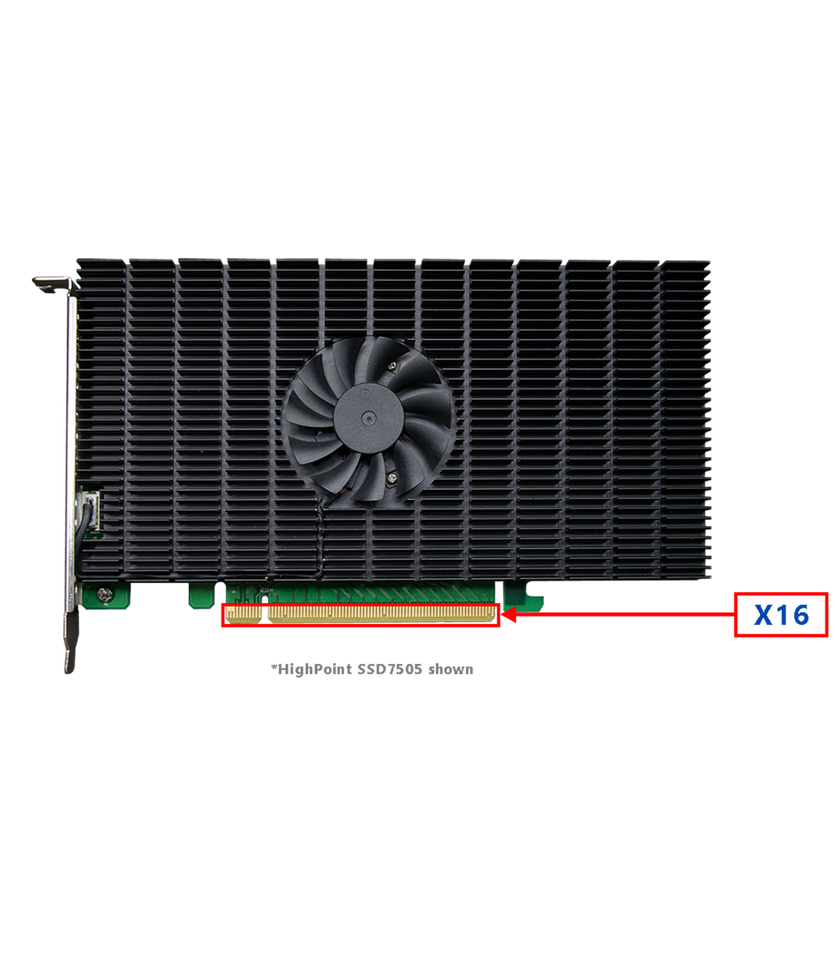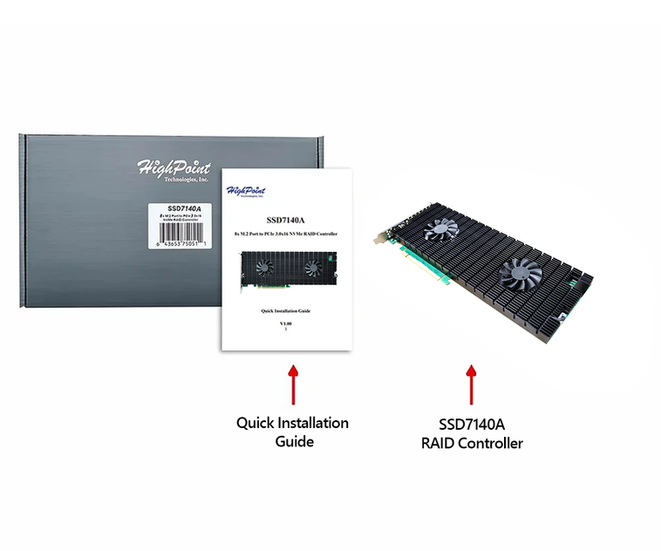
SSD7140A
PCIe 3.0 x16 8-Port M.2 NVMe RAID AIC
Maximize NVMe Storage Performance & Capacity for PCIe Gen3 Platforms
Double Your PCIe Gen3 Storage Performance & Capacity Potential
The SSD7140A is our second generation high port count (HPC) M.2 NVMe RAID AIC, and was designed for professional workflows that require a small-footprint, mass-storage solution that can take full advantage of PCIe 3.0 x16 transfer bandwidth, and is ideal for professional media workstation and server environments designed to support a wide range of editing, rendering, capture and streaming applications.
The SSD7140A allows customers to saturate x16 lanes of PCIe 3.0 bus-bandwidth with sustained transfer performance over 14,000MB/s while supporting up to 64TB of storage.
Performance Focused, Platform Independent NVMe RAID Solution
HighPoint NVMe RAID AICs are fully independent NVMe storage solutions. SSD7000 series PCIe Gen3 NVMe RAID AICs do not require a hardware environment with Bifurcation support and can be easily integrated into any AMD or Intel computing platform with a dedicated PCIe 3.0 or 4.0 x16 slot. The SSD7140A leverages intelligent PCIe switch technology to allocate up to 4x dedicated lanes to each M.2 SSD, to ensure maximum transfer speed and immediate response time.
Industy Proven NVMe RAID Engine: The SSD7140A is powered by HighPoint's industry proven NVMe RAID stack and is capable of supporting RAID 0, 1, 10 arrays and single-drives, including mixed configurations of single-disks and arrays, or multiple arrays.
Cross-Sync RAID Technology: SSD7140A AICs enable administrators to optimize RAID performance by scaling available bus bandwidth up to 32 lanes, and deliver up to 28,000MB/s of transfer speed.
Ultra-Efficient, Low-Decibel Cooling Solution
The SSD7140A's advanced cooling system ensures hosted NVMe SSDs consistently operate within their recommended temperature thresholds, even under sustained heavy I/O, by combining a full-length anodized aluminum heat sink with a pair of ultra-durable, near-silent fans, and high-conductivity thermal padding.






Specifications
Download
Product Gallery
Product Family
Q1: Which M.2 Port should be used to ensure Maximum Performance?
Q2: Why HighPoint SSD7500, SSD7000 Series NVMe RAID controller do not support RAID 5 and 6?
Q3: How are HighPoint’s SSD7000 series different from other, more common NVMe controllers?
Q4: SSD7000 controller is only using ½ of the PCIe bandwidth
Q7: Do HighPoint RAID controllers support mixed drive configurations?
Q8: Why is there a Yellow Mark shown for Base System Device?
Q9: Can HighPoint SSD7000 or SSD7500 support VMware ESXi/TrueNAS/FreeBSD?
Q10: Why File Explorer doesn't perform as high as a single NVMe when transferring data in Windows?
.png)












